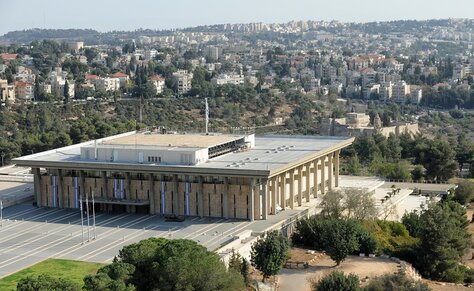The State Comptroller is examining whether the political parties in the Knesset and the entities running in the elections in Israel are managing their accounts pursuant to the law and the State Comptroller's directives
One of the roles of the State Comptroller is to conduct an audit on the accounts entities relevant to various elections in Israel, including- political parties running in the elections for the Knesset, the factions and the electoral lists running in the elections for the local authorities, the candidates for heading the regional councils and the candidates running in the preliminary elections of political parties. Likewise, the State Comptroller conducts an audit on the ongoing accounts of the political parties represented in the Knesset.
The Knesset has granted the State Comptroller audit powers, as established in various laws:
- By virtue of the Parties Financing Law, the State Comptroller examines how the political parties in the Knesset are managing their ongoing financial affairs and how the factions and the electoral lists of candidates running in the elections for the Knesset are acting during election periods from the financial aspect. Furthermore, the State Comptroller examines the conduct of a non-partisan body performing elections activity (“A Body Active in the Elections”).
- By virtue of the Local Authorities (Financing of Elections) Law, the State Comptroller examines the financial affairs of the factions and the electoral lists that participated in the elections for the local authorities and of the candidates for the heads for the regional councils who ran in the elections.
- The Parties Law granted the State Comptroller the powers to examine the accounts of candidates in preliminary elections in the various political parties (primaries). Furthermore, and by virtue of the Parties Law, the State Comptroller examines the financial conduct of a person who publicly announced his intention to run in the elections for the Knesset as part of a political party of which he is not a member.
These laws, and the State Comptroller's directives sets, rules and restrictions imposed upon the candidates in the various election campaigns.
As part of the audit, the State Comptroller examines whether the political parties and the candidates have managed their accounts pursuant to the law and his directives, whether the expenses have not exceeded the maximum sum permitted by law, and whether the donations received comply with the restrictions prescribed by law regarding the identity of the donor and the amount of the donation.
The State Comptroller publishes a report about his findings and determines in relation to each political party and each candidate whether they have acted in accordance with the statutory provisions and the directives, stating whether the report in their matter is positive or negative.
Financial sanctions are imposed upon candidates in the preliminary elections and upon political parties and factions that have not acted in accordance with the restrictions of the law and the State Comptroller's directives, in accordance with the findings of the State Comptroller's examination and his determinations, including cancelling the payment of some of the state financing funds that the political parties or the factions are entitled to.
The candidates must report to the State Comptroller about the donations they receive for financing their election campaign and this information is published for the public's information on the State Comptroller's website. After the State Comptroller's audit, the Comptroller's report includes lists of the donors.













